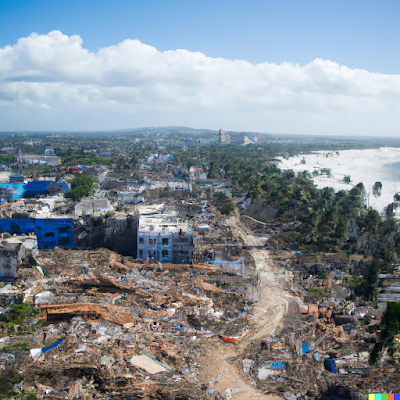Nyanza Hospital: appreciative inquiry design in Africa
Following Dr. Ashraf Salama’s last editorial on Appreciative Inquiry and its impact on environment and performance, I wondered about the outcome of this approach if applied in developing countries instead of industrialized ones –all cases cited in Dr. Salama’s editorial occur in the US, where people are more exposed to participatory systems. How different is it in other less participatory or developed parts of the world?
 Recently, our office had to advise on the extension and rehabilitation to the Nyanza Hospital in Rwanda. Architects Kristen Smith and Victoria Swan, graduate students interning at UNICEF Rwanda from UIC, were handled the task to facilitate the process. Their work decisively explored Dr. Salama’s three major appreciative inquiry qualities while gathering inputs from hospital and other site visits, interviewing hospital doctors and employees, consulting experts from the Ministry of Health and UNICEF, and reviewing similar cases.
Recently, our office had to advise on the extension and rehabilitation to the Nyanza Hospital in Rwanda. Architects Kristen Smith and Victoria Swan, graduate students interning at UNICEF Rwanda from UIC, were handled the task to facilitate the process. Their work decisively explored Dr. Salama’s three major appreciative inquiry qualities while gathering inputs from hospital and other site visits, interviewing hospital doctors and employees, consulting experts from the Ministry of Health and UNICEF, and reviewing similar cases.The steps, ultimately, do not represent a big difference. The key deviation, however, may strive on the type of inquiries and systematization of the process. Like in an interview or survey, questions concerning space can also be open or closed-ended, multiple options or draw it yourself. Time deadlines can also become serious setbacks whenever decisions are not reached. It is the role of the architect-facilitator to appraise potential obstacles and develop work-out mechanisms to reach consensus. Appreciative Inquiry is, therefore, an open yet guided (or structured) research.
In Nyanza the preliminary result was an innovative spatial solution that animates the hospital. The plasticity of the proposal raised, with little exceptions, curiosity towards a tailored contemporary design in the Rwandan context. The process is not yet completed but a healthy, welcoming environment is the goal.
-






Comentarios